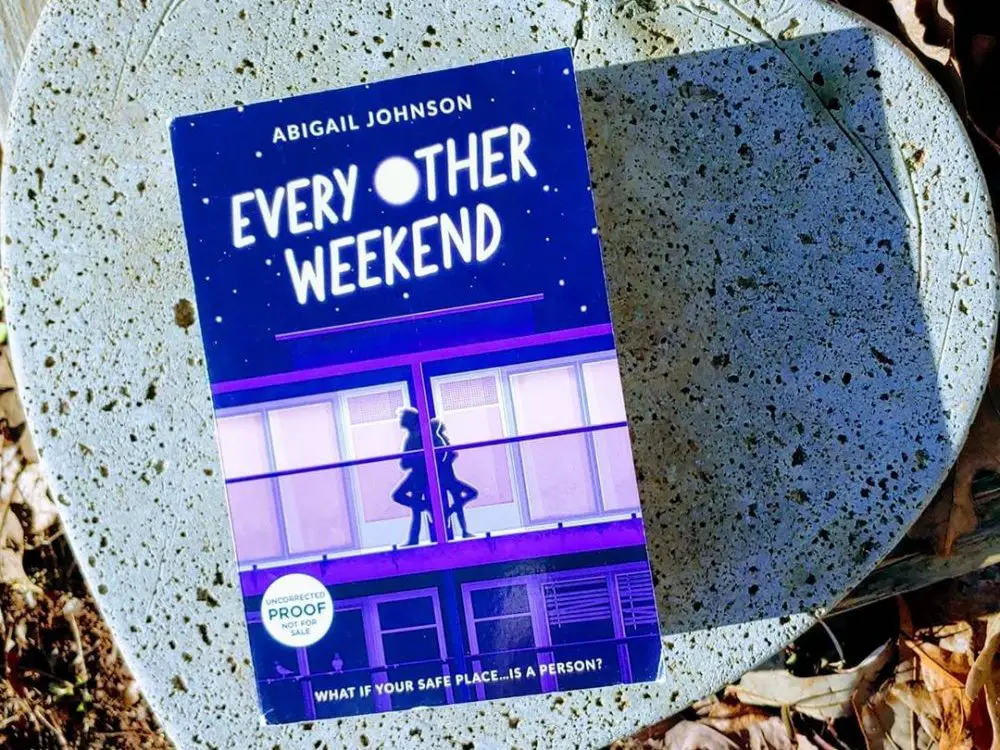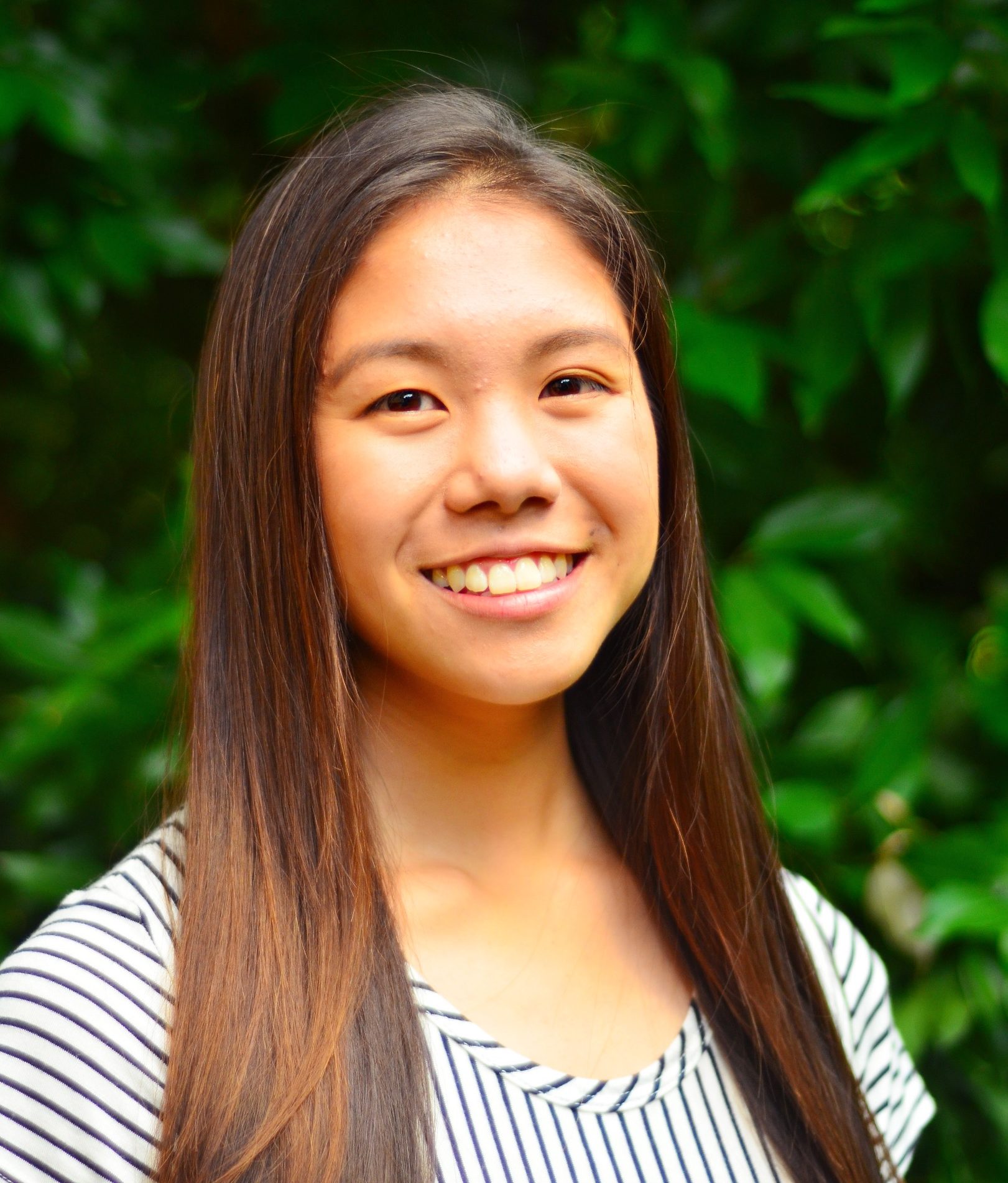Despite what my favorite childhood books led me to believe, finding the love of your life doesn’t automatically make all your problems fade into the background. Abigail Johnson‘s latest novel, “Every Other Weekend,” dismantles this fairy tale. The alternative it presents — a relationship that develops over a backdrop of brokenness — is sensitive and somber, but soulful above all.
The novel does more than shed light on the experience of seeing your parents divorce: It dives deep into the way a broken homelife touches every aspect of you and explores how two friends can support each other even as their situations flex and shift, for better and worse. It’s a complicated look into caring for someone else amid mutual pain and letting shared understanding help you navigate hardship together.
Complex, Well-Rounded Characters
https://www.instagram.com/p/CCgT_g0gD5O/
“Every Other Weekend” follows Adam and Jolene, two high schoolers from different neighborhoods whose fractured families have them staying at the same apartment complex every other weekend. The narration is handed off between them, with the occasional glimpse into the text exchanges that ensue a few months into their friendship.
Jolene’s parents divorced after her dad (and then her mom, in turn) had separate affairs. Now, she’s forced to move between her mom’s house and a shared apartment with her dad’s lover, Shelly. Adam and his brother have started coming to the apartment complex every other weekend since their dad moved out. The family has been strained ever since losing their oldest son, Greg.
Given their situations, it’s no surprise that Adam and Jolene get off to a rocky start when they first meet — both are frustrated with their parents and wary of strangers. But over time, a combination of nothing else to do and shared messy experiences pieces together an unlikely friendship. Before long, one unexpected adventure turns into spontaneous hangouts at the nearby playground or local ice cream shop every free moment.
When their parents are fighting and everyone seems to want something different from them, Adam and Jolene find in each other a safe place to exhale and be the teens they are. In teasing banter, master schemes for the future and candid conversations, they find the support that anyone in their position desperately needs.
Diversity Among Divorced Families
But Johnson doesn’t let readers forget that the protagonists, bold and compassionate as they are, are still part of complex, ever-changing families. Although it’s a relief to escape the strain of home, Adam and Jolene quickly realize that taking refuge in their relationship isn’t going to solve all their problems. Spending all their time with each other only neglects their still falling-apart families.
Instead of advocating for a romanticized “us against the world” escapism or painting all the parent figures and home-wreckers with the same callous, unsympathetic shade, Johnson colors many of the side characters with hopes and flaws that make them all too human.
Adam’s mom, though sweet, makes it impossible for her family to grieve because she can’t accept Greg’s death. Her avoidant husband can’t handle it and decides to evade the pain entirely by moving out.
Jolene’s family is an exception — they’re not nearly as worthy of sympathy. Her father is unmistakably terrible: He doesn’t show up once for his daughter. Jolene’s mother is equally detestable, always drunk and only ever kind to Jolene when she wants to impress her new boyfriend.
Just because both families are separated doesn’t mean their personalities or reasons for moving out are carbon copies of one blueprint. Each marriage, each family, is marred by a brokenness of its own kind. Some move on from tragedy, and others only spiral downward into their own made-up realities. And mingled with this account of separation is also a tale of loss.
Johnson does justice to the grieving and healing process by letting the characters handle it in varied ways. The changes of each week, whether Jolene’s mom starts fighting with her boyfriend or Adam crosses a line with his dad, demonstrate that divorce or separation is much more than a before-and-after.
Thankfully, “Every Other Weekend” leaves ample room for the angry silences, failed resolutions and private tears that come with trying to piece together a marriage, family or personal identity from the fragile shards of a past life.
The Complications of Love Through Change
As Adam and Jolene learn from each other, the two come to approach their families as more mature versions of themselves. Although it doesn’t immediately resolve their familial feuds, it does mean that the two muster the resilience to find a way through.
Their journeys are neither linear nor parallel, though. Each character’s unique stumble toward healing acknowledges our lived reality: Recovery looks different for everyone. And just because one person’s life starts to shape up doesn’t mean the same goes for the other.
Once Adam comes to grips with his responsibility to be emotionally present with his family, they actually start to reconcile — but the progress that gives Adam hope actually crushes Jolene. The news is just a reminder of her own parents’ irredeemable situation and the temporariness of her time with Adam.
So, already bracing for the split-up, Jolene withdraws into herself; the numbing fear of being alone leaves her vulnerable to unwise decisions, and it culminates in something no teenager should ever have to undergo: assault. Even while Adam’s family is on the mend, Jolene experiences the most devastating minutes of her life. Their trajectories are never more obviously independent than in this scene.
But “Every Other Weekend” isn’t a hopeless tale of the destruction that visits some individuals more than others. Clearly, moving forward looks different for one person than for the other and might involve two steps forward and one step back. But in the end, Adam and Jolene’s story proves that there is still a way forward when you have friends to help you walk through it.
A Hopeful Ending
Johnson dives deep into the heartbreak and pain of separated families so that the strength of relationships, new or mended, can shine through. Although their experiences may elicit tears, the lovable characters and their brave journeys through the ache will arrest your heart and your attention until the very end.
When family falls apart, friends can provide the unwavering support we need. ”Every Other Weekend” is an invitation to take a chance on friendships to carry us through the worst that life can give us, so we can come out safe on the other side.

















